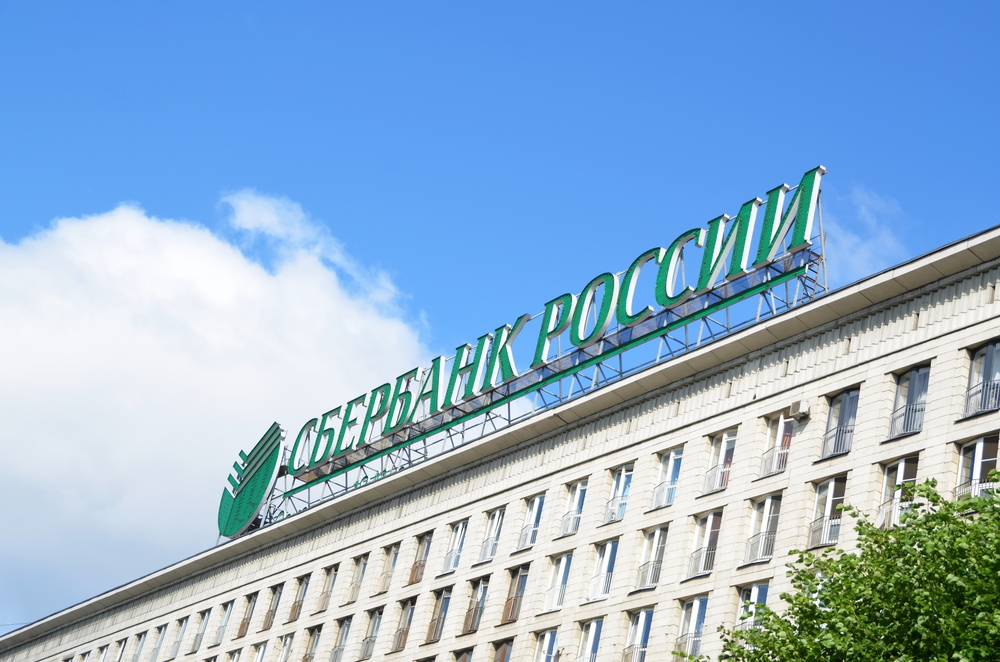Russia’s Biggest Bank Wants to Join R3, Embrace Blockchain and Avoid Bitcoin

Sberbank, Russia’s largest bank in net assets intends to join the R3-led international blockchain consortium, according to reports.
As reported by Russian news publication Kommersant , Sberbank, Russia’s biggest bank with over three times the net assets over its closest competitor is keen on joining the global consortium of 30 banks and financial institutions led by New York-based R3.
Speaking to be publication, Sberbank’s First Deputy Chairman of the Management Board, Leve Khasis, confirmed the bank is keeping a close eye on the evolution of blockchain technology. He added the bank is looking into the documentation pertaining to R3 and pending a final decision, he doesn’t refute the possibility of joining the consortium.
Khasis adds that Sberbank will be the first to implement blockchain solutions as soon as the industry embraces it.
R3 [was created] in order to develop protocols, standards and technology. As soon as [these] are implemented, we believe we [Sberbank] will be among the first to take part in it.
R3’s global blockchain consortium is arguably the most publicized private blockchain endeavor to come together on a global scale, with five more banks including the likes of ING and Wells Fargo to join the working group in Novermber. Altogether, R3 now counts 30 banks as its participating members which include banks such as JPMorgan, Barclays, Citi and HSBC among others.
The collective aim of the group is to explore Bitcoin’s underlying technology, the blockchain with its multitude of applications and potential in facilitating a cheaper, more secure and an entirely efficient blockchain framework among participating banks. The outcome of the effort is expected to save money, decrease transactional errors and significantly increase settlement speeds.
Blockchain but No Bitcoin?
While Ukraine’s largest bank, PrivatBank recently announced its effort to help integrate Bitcoin as a mode of payment, Sberbank has no intention to facilitate Bitcoin nor its own cryptocurrency, due to regulations in the country.
As far as I know, the position of the regulator (the Russian central bank) has not changed and it has a negative take on cryptocurrencies. However, Blockchain may be used by us for internal settlements such as transactions between our subsidiaries and other banks.
He added that Sberbank’s interest in bitcoin’s blockchain had little to do with bitcoin or cryptocurrencies.
Cryptocurrencies are irrelevant here, it [blockchain] is a simpler, faster and more reliable accounting method.
Previous efforts to launch local cryptocurrencies in Russia have been met with apprehension from regulatory authorities and the government. The Russian government has repeatedly drawn up plans to ban bitcoin in the past. The end of 2014 saw one such effort, while the Russian Parliament was reportedly discussing a possible Bitcoin ban in 2015, late last year. A significant development occurred this year with Bitcoin regulation in the country when the Russian Finance Ministry proposed a 4-year prison sentence for Bitcoin users.
Blockchain Could Help Banks Survive on the Global Stage
Blockchain technology could significantly help Russian banks on a global scale, circumventing proposed sanctions against the country after last year’s diplomatic tussle with Ukraine. Former deputy director of IT development at Home Credit explains:
If sanctions are administered, Russian banks are at the risk of being disconnected from SWIFT, the international interbanking network. Using blockchain helps increase the stability and reliability of the bank with its distributed, decentralized system.
Several EU countries pushed for sanctions against Russia, including an effort to get SWIFT to block Russian banks from its network. SWIFT refused to do so. Quite simply, blockchain technology could help Russian banks exist on a global stage for settlements and transfers of assets, if such sanctions are implemented.
The quotes mentioned are a rough translation from the source publication.
Images from Shutterstock.